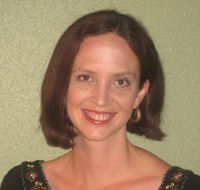On not growing in faith and knowledge
In recent conversations with my seminary classmates, we've
been lamenting the state of Christian education. In many churches it is evident
that the average member hasn't grown in religious or biblical knowledge since he
or she heard moralistic tales of Noah, Esther or Daniel as a child. Some even resist
pastoral attempts to expand their Christian knowledge, and they simply refuse
to learn about other
religions. As seminarians, we are struggling with how to respond to this.
It's a significant problem because it affects not only the
faith of the communal body of Christ but also how we live in a pluralistic
society. Religious identity matters, now more than ever. Our globalized age has
seen increased secularization and indifference to the particularities of
religion-but this doesn't lead to a society where religion doesn't matter. It
leads to misunderstanding about the other, with sometimes dire consequences.
A poor understanding of our religious self fails both the
body of Christ and the needs of our global society. For society to be healthy
we must do the hard work of understanding ourselves as religious creatures as
well as opening ourselves up to learning about the religious other. I
appreciate this comment from Tom Greggs:
Far from being a distant (and
perhaps unimportant) figure, the religious other has become in recent times a
real person who affects the communities and the world to which each of us
belong.
We are interconnected with people of all religions whether
we like it or not. A lack of understanding places us in a position of judgment
of other faith systems' validity. It also fuels the paranoia of fundamentalist
factions within them. When the interconnected world asserts that
fundamentalists' faith is too irrelevant to be understood, this confirms their
worst fears--and fear can spur violent reaction.
Living in a pluralistic world requires respect, which in
turn requires knowledge and understanding. The question for current and future
clergy is this: how can we initiate and shepherd this process in our churches?






